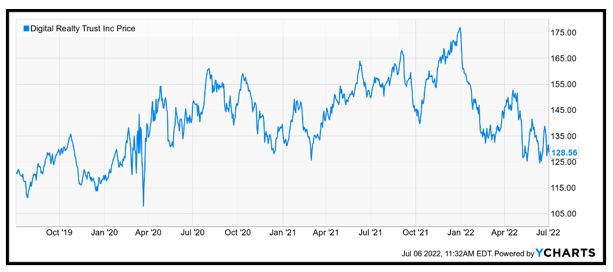The corporate world is going all in on the cloud, which will have huge implications for investors in cloud stocks.
Executives at FedEx (FDX) announced on Tuesday that the logistics giant will close its data centers and move completely to the public cloud. The transition could save $400 million annually.
But this move is part of a much larger industry trend.
Corporations have been moving to cloud-based computing and data storage for more than a decade. The difference now is that the biggest companies are closing their proprietary data centers — or the space they lease from others — in favor of the public cloud.
This transition is a big win for the likes of Amazon (AMZN), Microsoft (MSFT) and Alphabet (GOOGL). As the three largest players in the public cloud, these tech giants are set to win big.
The cloud is ultimately about scale, streamlining costs and eliminating monolithic applications.
That was the message Tuesday from Robert Carter, the chief information officer at FedEx.
Carter told analysts at the annual investor day that the company, based in Memphis, Tennessee, is moving quickly to a zero-data-center, zero-mainframe structure. The transition will dramatically reduce hardware upgrade cycles, labor costs and will help the company build applications more quickly.
Related Post: Wall Street Bankers on Trial
Data center tracking firm Baxtel notes that FedEx currently operates a single facility in Colorado Springs. That center was completed in 2008, with a 26,000-square-foot expansion three years later.
Analysts at Morgan Stanley (MS) claim the current cloud is overbuilt and that revenues have been pulled forward due to the pandemic. However, companies like FedEx began moving to the cloud long ago.
While that event accelerated adoption, it was not the catalyst. Cost cutting is driving the shift, and now bigger corporations are even closing their colocation facilities.
Precipitation Keeps Accumulating in the Cloud
Analysts at Gartner estimated in April that worldwide spending for the public cloud will reach $497.4 billion in 2022, a 20.4% increase year over year.
And the big cloud companies are set to reap most of the rewards as the cloud infrastructure they provide grows fastest.
Hyperscale data-center networks like Amazon Web Services have tremendous economies of scale advantages.
Not only can they buy the newest hardware at huge discounts to their smaller competitors … but they also have in place vibrant third-party developer ecosystems.
Investors should expect the Big Three to exploit these advantages to the detriment of firms like Digital Realty Trust (DLR), a data-center real estate investment trust.
Related Post: Make Your Portfolio Prettier
Real estate investment trusts are companies that own income-producing properties. REITs must have at least 100 shareholders, and 90% of their taxable income must be distributed to these investors. In return, the trusts receive tax benefits.
DLR grew quickly during the pandemic as many companies initially sought colocation at data centers.
In 2020, Digital Realty Trust closed a $8.4 billion acquisition of Interxion, Europe’s largest colocation provider of digital services. The deal grew the overall business footprint to 267 data centers in 20 countries.
As clients now go all in on the cloud, colocation is at risk. Jim Chanos, a noted short seller, called this technical obsolescence.
He explained last week in an interview with the Financial Times that "value is accruing to the cloud companies, not the brick-and-mortar legacy data centers.”
It’s a battle companies like Digital Realty Trust can’t win. The Big Three are spending more and innovating faster to win large corporate clients. Profit margins and payouts to shareholders at DLR look like they could shrink rapidly.
The current dividend for shares is only 3.8%. That number is barely competitive with the 3.0% yield of the 10-year Treasury Bond, let alone the prospect of reduced payouts in the future.
The writing appears to be on the wall. As corporations like FedEx go all in on the cloud, it looks like a good time for investors to bail on legacy players like Digital Realty Trust.
As always, remember to do your own due diligence before entering a trade.
One last thing to consider …
For nearly 100 years, average investors were forbidden from investing in so-called Alpha Round deals — the earliest pre-IPO funding that produces the biggest returns. But new laws have opened these deals to everyone.
This month, Weiss Ratings is diving into this exciting new frontier of the market. On Tuesday, July 19, join Dr. Martin Weiss for the Alpha Round Investing Summit to seize this historic opportunity … and claim first access to a special Alpha Round deal for Weiss Ratings!
Click here to reserve your spot for free.
Best wishes,
Jon D. Markman


